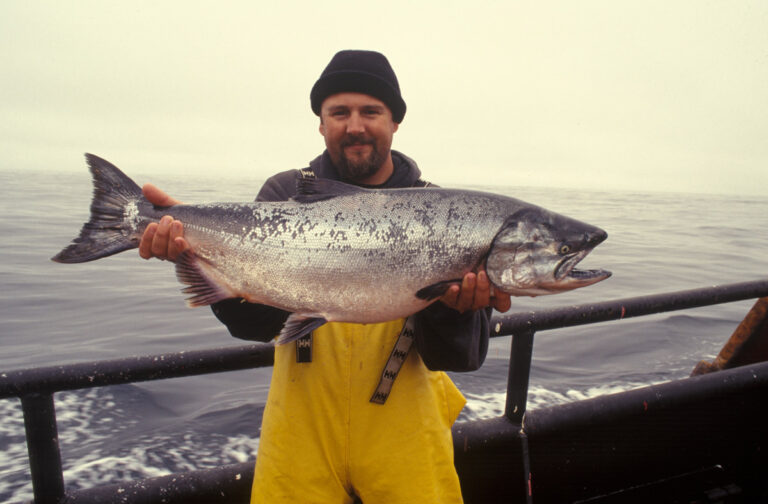Salmon sperm is being used to make eco-friendly plastic
Researchers at Tianjin University (TJU) in China have developed a sustainable, biodegradable plastic derived from salmon sperm and vegetable oil, which might just be the most viable solution yet for the world’s imminent plastic pollution problem.
The promising material was created by extracting strands of DNA from the sperm of salmon—although it should be noted that the semen could come from just about any living thing—and dissolving the genetic matter in water with ionomers, a type of polymer commonly found in adhesives, to produce a gel that’s pliable enough to be moulded into various forms such as a cup. The substance is then freeze-dried to set the shape.
The researchers’ experimentation led to the creation of a rumpled-looking cup, a model of DNA and puzzle pieces, all made of what they call “DNA-based plastic.” Both DNA and plastics are made of polymers, which may be naturally occurring or synthetic (the former abundantly available in plants, animals and bacteria, and the latter relying on petroleum oil, also known as fossil fuels).
The gel is then moulded into different shapes and freeze-dried 💠
— Euronews Green (@euronewsgreen) November 30, 2021
This removes the moisture, which makes it solidify 💪
And wham, bam, thank you ma’am, you have environmentally friendly sperm plastic 😌
👉 https://t.co/zT1tcCXvVt pic.twitter.com/5RHaDwdPCv
The result looks and feels somewhat like plastic but produces less than 5 per cent of the carbon emissions generated during typical polystyrene plastic manufacturing, according to a recent study published in the Journal of the American Chemical Society.
“To the best of our knowledge, our reported DNA plastics are the most environmentally sustainable materials of any known plastics,” said lead researcher Dayong Yang, The Times of London first reported in October 2021.
It goes without saying that plastic products are often used to contain liquid. But considering that rehydration of the eco-friendly material is needed in order for it to be recycled, using it as a viable cup option is probably out of the question—not to mention that drinking from a cup made out of dried fish sperm probably isn’t anyone’s go-to move. That being said, it theoretically could be used for other non-moisture related purposes such as electronics and other forms of packaging. Researchers have also suggested that such bioplastic vessels would have to be treated with a waterproofing material, which could, unfortunately, diminish its recyclability.
Yang’s team found their invention “showed obvious superiority in terms of biodegradability, the production of by-products, [carbon] emission, energy consumption and processing quality,” they wrote in their report.
Their research comes as scientists scramble to find solutions to reduce plastic waste. In the US alone, more than 30 million tons of plastic are discarded annually, only 8 per cent of which gets recycled, according to a 2019 report by the Plastic Pollution Coalition, which was first highlighted in a New York Post article. Much of the rest ends up in landfills, while another 1 to 2 million tons is littered on land and in water, where it may be broken down into microplastics, and later consumed by animals and humans alike.
Meanwhile in the UK, a 2021 report from Greenpeace unveiled that only 10 per cent of our plastics are recycled while the rest is, quite literally, dumped in other countries. Reporting on the matter for Screen Shot, Jack Ramage wrote, “Investigating ten sites across Southern Turkey, in its latest report, Thrashed, Greenpeace found plastics from major UK supermarkets burned or dumped. Plastic waste was also found in waterways, floating downstream and washing up on the Mediterranean coast.”
Considering how abundant DNA is as a resource, this new hydrogel plastic could prove to be a good alternative. How scientists will collect enough sperm to make mass production possible is another problem we’re not quite ready to face just yet.






